Closing on a house is the final stretch of the home-buying journey, where finances are sorted and ownership officially transfers. While exhilarating, closing day comes with various costs that can surprise some buyers. These expenses—known as closing costs—cover necessary fees, services, and taxes involved in making the property transfer official. For buyers, understanding what makes up these fees and how much to budget is essential to avoid last-minute surprises. By knowing the breakdown, buyers can be well-prepared and negotiate some of these costs, potentially saving thousands.

Closing Costs and Their Financial Impact
Closing costs are the fees and expenses that buyers and sellers must pay to finalize the sale of a property. These costs cover a variety of services essential for the legal transfer of property ownership, from lender fees and title insurance to appraisal fees, inspections, and government recording fees. For a homebuyer, these fees typically amount to around 2% to 5% of the home’s purchase price, though the exact percentage can vary based on location, loan type, and individual lender policies. For example, on a $300,000 home, closing costs may range from $6,000 to $15,000. These fees are generally due at the closing appointment, meaning that buyers should plan for these expenses in addition to their down payment.
In most cases, closing costs are paid out of pocket, adding a substantial expense for buyers to prepare for before they even move into the home. Lenders and real estate professionals provide a detailed breakdown of these costs before closing so buyers know what to expect. Buyers should review these estimated costs carefully, as understanding each fee can also create opportunities to negotiate certain costs or shop for better rates on items like homeowners insurance or title insurance.
For buyers concerned about affording these costs upfront, some lenders offer an option to finance them by rolling the expenses into the mortgage loan. This solution, however, has implications. By financing closing costs, buyers are increasing their loan amount, which also means paying interest on the added sum for the life of the mortgage. This option can be helpful for buyers who need to keep more cash on hand, but it does mean higher overall payments in the long run due to interest. Buyers should carefully weigh the benefits and costs of financing closing expenses with their lender, as the long-term impact can be significant.
Loan Origination and Processing Fees
One of the largest components of closing costs for buyers is the lender’s fee, also known as the loan origination fee. This fee compensates the lender for processing, underwriting, and handling the loan paperwork from start to finish. Often expressed as a percentage of the loan amount, typically around 0.5% to 1%, it can add up quickly, especially on higher-value loans.
In addition to the origination fee, buyers might see other associated costs such as credit report checks, document preparation, and sometimes mortgage broker commissions. These fees may be itemized or bundled, depending on the lender. Some buyers may be able to negotiate certain fees or shop around for lenders with lower origination costs, which can provide meaningful savings. It’s worth discussing these details upfront with a mortgage professional to get a clear picture of what to expect.
Appraisal and Inspection Fees
Before approving a mortgage, lenders typically require an appraisal to determine the property’s fair market value. This cost is essential to ensure that the home is worth the amount being financed and usually ranges from $300 to $600, depending on the property type and location. Appraisals not only protect the lender but also offer reassurance to the buyer that the purchase price aligns with market value.
Home inspections, while often optional, are highly recommended. An inspection uncovers potential issues, including structural problems, electrical or plumbing concerns, and roofing defects. The inspection cost typically ranges from $300 to $500, depending on the size and complexity of the property. Specialized inspections, like those for pests, radon, or mold, may be required for certain types of homes or regions and can add $50 to $300 to the closing costs. Although these fees increase the upfront investment, they help buyers make informed decisions and potentially avoid expensive repairs after purchase.
Title Insurance and Search Fees
Title insurance protects buyers and lenders against disputes over property ownership. Lenders require a title search to confirm the seller’s legal right to transfer ownership and identify any existing claims, such as unpaid taxes or liens, that could jeopardize the transaction. Title search fees typically range from $200 to $400, depending on the location and complexity of the property’s history.
In addition, title insurance premiums cover both the lender’s policy and, in many cases, the buyer’s policy as well. Lender’s title insurance is mandatory, protecting the lender’s financial interest, while owner’s title insurance, which is optional but advisable, protects the buyer’s equity in the property. Combined, these premiums can cost between $500 and $2,000. Buyers should ask the title company or agent about potential discounts, as sometimes bundling lender and owner policies together may reduce costs.
Property Taxes and Transfer Fees
When a property changes hands, local governments often impose transfer taxes or fees, usually calculated as a percentage of the sale price or a flat rate based on the home’s value. These charges vary significantly by state and municipality but can add hundreds or even thousands to the closing costs. For example, in some states, buyers may be responsible for covering a large portion of the transfer tax, while in others, this is split between buyer and seller.
Additionally, many buyers are required to prepay a portion of property taxes at closing. If property taxes are paid annually or semi-annually, the buyer may need to cover the prorated amount up to the closing date, ensuring that taxes are current at the time of sale. This prorated amount may range from a few hundred to several thousand dollars, depending on the timing of the sale and the property’s assessed value. Buyers can review these details in advance with their real estate agent to ensure accurate budget planning.
Homeowners Insurance and Prepaid Costs
Most lenders require buyers to obtain homeowners insurance before finalizing the purchase, as it protects the home against potential damage from fires, storms, and other hazards. Lenders usually require the first year’s premium to be paid upfront at closing, with the cost typically ranging from $700 to $1,200 depending on factors like location, property size, and coverage level.
Beyond homeowners’ insurance, buyers might also need to prepay several months’ worth of other recurring expenses like property taxes and mortgage interest, particularly if the lender is setting up an escrow account. This escrow account collects monthly contributions from the buyer, ensuring property taxes and insurance premiums are paid on time each year. Buyers should factor these prepaid costs into their closing expenses, as they can add up to several hundred or even a few thousand dollars.
Closing Agent and Attorney Fees
Closing agents, also known as settlement agents or escrow agents, oversee the closing process, handling the exchange of funds and ensuring all documents are signed and recorded. Their fees vary but generally range between $500 and $1,500, depending on the complexity of the transaction and the services required. In some states, an attorney must be present at closing, and their fees may add another $500 to $1,000 to the total closing costs.
While buyers cannot usually avoid these fees, they can choose from different title or escrow companies that may offer competitive rates. It’s important to compare quotes and inquire about any discounts or potential bundling of services. Buyers in states where attorney involvement is optional may want to discuss whether they need an attorney for specific legal guidance, particularly if the transaction involves unique circumstances.
Recording Fees and Miscellaneous Costs
Every property transaction must be officially recorded with the local government, and recording fees apply to this documentation process. These fees ensure the property title and mortgage information are legally filed, safeguarding the buyer’s ownership rights. Recording fees are usually modest, ranging from $50 to $250, though they vary by state and county.
Miscellaneous costs, while individually small, can add up quickly. These may include courier fees for transporting documents, fees for electronic document signing or processing, and charges for notarizing essential paperwork. While some of these items may appear minor, budgeting an additional $100 to $200 can help cover these last-minute expenses without stress. Buyers can ask their lender or closing agent for a detailed list of these charges to avoid surprises.
Take the First Step Toward Homeownership
Understanding closing costs equips buyers to approach the final stages of purchasing a home with clarity and confidence. Each cost plays a crucial role in securing the investment, ensuring smooth ownership transfer, and protecting the buyer’s long-term interests. When the time feels right, connect with me for guidance through each step of the process, from initial search to closing day. Let’s get you into the home that matches your vision and fits your financial goals.


